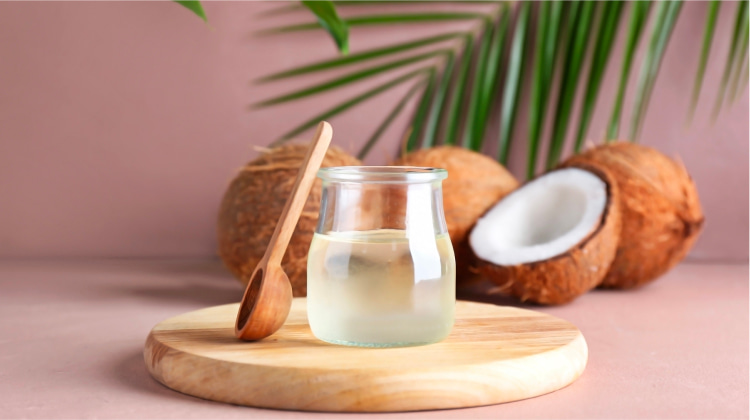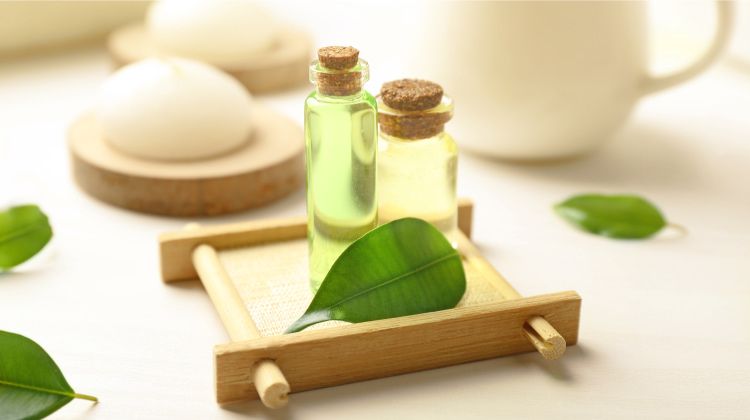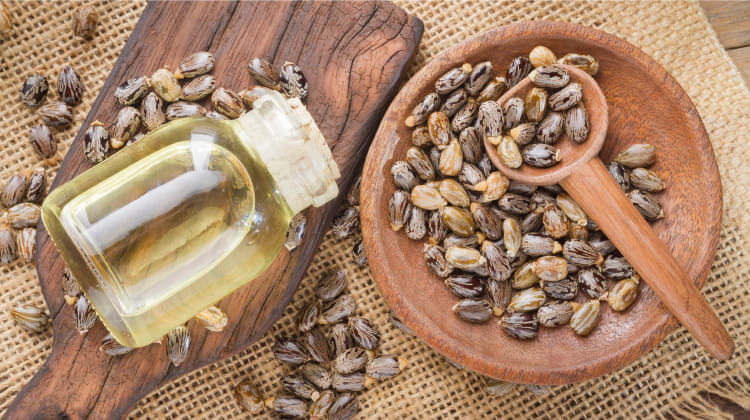
Hey there, hair care enthusiasts! So, you've discovered the magic of hair oil, huh? That ancient secret passed down through generations to give us luscious, healthy locks. But are you just slathering it on and hoping for the best? Oh dear, we need to chat!
See, just as with any magic trick, it's all about technique. And let's not forget frequency - after all, how often should you oil your scalp? Hmm... Intriguing, isn't it?
In this article, we'll demystify the art of hair oiling. We'll dive deep into the frequency debate, explore the proper scalp oiling method, delve into the benefits, and even scout out the best natural oils for your hair. Sit tight, grab your favorite hair oil, and let's unlock your hair's true potential together, shall we?
How Often Should You Oil Your Hair?
Okay, let's tackle that burning question: how often should you grease your scalp? Ready? It's...well, it depends. Not the definitive answer you were hoping for, we know, but hear us out!
Your hair type and its reaction to oils play a huge role. Now, for many of us, a once or twice a week hair oiling ritual does the trick. But, if your hair is going through a rough patch (quite literally), you might want to amp up the frequency to every other day until it's back in the game.
And here's where things get a bit like a science experiment. Try out different schedules, see what brings out the best in your hair. But keep an eye out! Over-oiling can turn your hair into a greasy, flat mess rather than the vibrant mane you're aiming for. So, tread carefully, my friends!
How to Use Oil On Your Scalp Properly

To get the most out of hair oiling, it's important to know the proper technique. There are various methods to use oil on your scalp, and we will discuss three effective ways below.
Pre-Poo Method
One effective way of oiling your scalp is by using the Pre-Poo method. It's just applying oil before shampooing. Here's how:
- Divide your hair into sections, detangling each with a wide-tooth comb or fingers.
- Apply the oil from the roots down.
- Gently massage the oil into your scalp.
- Don your shower cap, letting the oil work its magic for 15-30 minutes.
- Rinse with shampoo.
This method is a game-changer, especially for those with dry or frizzy hair - hello, moisture-lock!
Hot Oil Treatment
Another way of oiling your scalp is through a hot oil treatment. It's not as scary as it sounds! It's all about heating the oil to enhance absorption and protect the hair against damage. The warmth from the oil relaxes the scalp, leading to increased blood flow and promoting healthier and stronger hair. Here's the drill:
- Warm up the oil in the microwave for 10-15 seconds.
- Let it cool to a warm temperature.
- Apply it from roots to tips.
- Pop on that shower cap, and wait for 30 minutes to an hour.
- Rinse with shampoo and a dash of conditioner if needed.
Scalp Massage
A scalp massage can be an effective way to enhance relaxation and increase blood circulation while also promoting a healthier scalp. It can also reduce the prevalence of flakes, itching, and redness. Ah, relaxation and hair health in one! Here's your step-by-step guide:
- Warm a small amount of oil in your palms or microwave.
- Massage the oil onto your scalp in circular motions.
- Take a 5-10 minute tour around your head, ensuring every area gets some love.
- Rinse with shampoo.
Benefits of Oiling Hair

Alright, let's roll up our sleeves and delve into the fascinating world of hair oil benefits(1). Yes, it's more than just a fancy spa ritual!
Improve Scalp Health
Hair oil is the fairy godmother your scalp has been waiting for. Picture this: a soothing massage with your favorite oil, increasing blood circulation, and voila - you're on the road to healthier hair and fewer split ends.
Itching and flaking? Consider them history. Hair oil is your knight in shining armor, clearing away product buildup and leaving your scalp fresh as a daisy.
Promote Hair Growth
As you massage those precious oils into your hair, they are busy delivering a cocktail of vitamins and minerals. Imagine each strand getting a VIP treatment of strength and moisture.
But it gets even better! That gentle massage is sending a wake-up call to your follicles, stimulating new hair growth. So, get ready for fuller, thicker locks that would make Rapunzel green with envy.
Protect Your Hair
Think of hair oils as your hair's personal bodyguard, shielding each strand from damage(2) and breakage. It's like donning an invisible helmet that retains moisture and natural oils. The result? Fewer split ends and stronger, healthier hair. Plus, some oils are sun warriors, offering protection against those pesky UV rays. How's that for a multi-tasking hero?
Improve Hair Appearance
Imagine your hair as a canvas, and hair oils as the ultimate paint palette - full of essential vitamins to make your hair and scalp shine, literally! Bidding adieu to the greasy residue of silicone-based products, these oils lavish your hair with a natural glow. Frizz and flyaways? Hair oils are here to smooth things out, turning your tresses into a glossy masterpiece.
Fix Specific Health Issues
Essential oils are like your personal hair wizards, each with their unique enchantment. Tea tree oil and rose oil, for example, are your allies against dandruff and inflammation.
Peppermint(3), tea tree, and rosemary oils(4) pack an anti-inflammatory punch that can help keep hair loss at bay. Graying too early? Coconut oil has got your back. Plus, who knew tea tree oil was a natural lice-repellent?
Offer Stress Relief
Hair care is not just about flaunting enviable locks; it's a holistic experience. The simple act of massaging oil into your scalp is akin to a mini meditation session. It's calming, it's soothing, and it's your secret weapon against stress and tension. So, why not give yourself a little hair therapy?
Natural Oil to Use for Your Hair
Here are some of the best natural oils to incorporate into your hair care routine.
Coconut Oil

If your hair could speak, it'd probably be a fan of coconut oil(5)! Hailing from South Asia, this wonder oil is jam-packed with lauric acid, which loves bonding with proteins and sneaking into your hair shaft. The result? Reduced protein loss and a big thumbs up for hair health.
But wait, there's more! Coconut oil is like a bouncer for your hair, forming a protective layer while balancing the good and bad bacteria on your scalp. So, get ready for soft, shiny locks that can take the heat!
Sesame Oil

Now, let's talk about the unsung hero of hair care - sesame oil(6). If your hair's worst enemy is frizz and split ends, this oil is your knight in shining armor. With a treasure chest of vitamins and minerals, it provides deep conditioning to your scalp. And guess what? Its antibacterial and antifungal powers can kick dandruff to the curb!
Tea Tree Oil

Ever heard of a tree that brews up an elixir for your scalp? Meet tea tree oil(7), a super potent potion with antifungal, anti-inflammatory, and antimicrobial properties. It's like a multi-vitamin for your hair, tackling everything from dandruff to promoting hair growth and thickness.
Got some pesky scalp conditions like seborrheic dermatitis or psoriasis? It's got you covered too! But remember, tea tree oil is like a concentrated shot of espresso - always dilute it with a carrier oil before use.
Castor Oil

If your hair's sending out SOS signals due to dryness and flakiness, castor oil(8)'s on its way to rescue! This humble oil is a hydration hero that softens your hair, enhances scalp blood circulation, and dances a jig with vitamin E, proteins, and minerals to promote healthy hair growth.
A little tip from the hair care playbook - mix it with carrier oils like sesame oil and warm it up before applying for an easier glide.
The Bottom Line
So, is oiling good for hair? Absolutely! But wait, don't go pouring oil over your head just yet! Like making the perfect pasta, you've got to get the oiling process just right to whip up the best recipe for your hair health. It's not a one-size-fits-all scenario. You see, the frequency of hair oiling needs to be just right, and that 'right' varies based on your hair type and its reaction to oils.
Remember, you are the maestro of your hair's orchestra! So, play around with different rhythms - timelines, techniques, and oils - until you strike the perfect harmony. Only then will your hair sing its healthiest and happiest tune! After all, your hair deserves a symphony, not a cacophony!
References
1. Arghya, A. and Mysore, V. (2022). Hair oils: Indigenous knowledge revisited. International Journal of Trichology, {online} 14(3), p.84. doi:https://doi.org/10.4103/ijt.ijt_189_20.
2. Europe PMC (2016). Europe PMC. {online} Europepmc.org. Available at: https://europepmc.org/article/med/12715094.
3. Ji Seon Oh, Park, M.S. and Young Ho Kim (2014). Peppermint Oil Promotes Hair Growth without Toxic Signs. Toxicological research, {online} 30(4), pp.297–304. doi:https://doi.org/10.5487/tr.2014.30.4.297.
4. Bhaskaran Sasikumar (2012). Rosemary. Elsevier eBooks, {online} pp.452–468. doi:https://doi.org/10.1533/9780857095671.452.
5. Evangelista, M.T.P., Abad-Casintahan, F. and Lopez-Villafuerte, L. (2013). The effect of topical virgin coconut oil on SCORAD index, transepidermal water loss, and skin capacitance in mild to moderate pediatric atopic dermatitis: a randomized, double-blind, clinical trial. International Journal of Dermatology, {online} 53(1), pp.100–108. doi:https://doi.org/10.1111/ijd.12339.
6. Hwang, L. S. (2005). Sesame oil. Bailey's industrial oil and fat products, {online} 2, 547-552. Available at: https://www.academia.edu/download/45595275/00b4951cab2a44ccfe000000.pdf.
7. Carson, C.F., Hammer, K.A. and Riley, T.V. (2006). Melaleuca alternifolia (Tea Tree) Oil: a Review of Antimicrobial and Other Medicinal Properties. Clinical Microbiology Reviews, {online} 19(1), pp.50–62. doi:https://doi.org/10.1128/cmr.19.1.50-62.2006.
8. Ogunniyi, D.S. (2006). Castor oil: A vital industrial raw material. Bioresource Technology, {online} 97(9), pp.1086–1091. doi:https://doi.org/10.1016/j.biortech.2005.03.028.

.jpg)
.jpg)
.jpg)
.jpg)
.jpg)
.jpg)
.jpg)
.jpg)
.jpg)
.jpg)